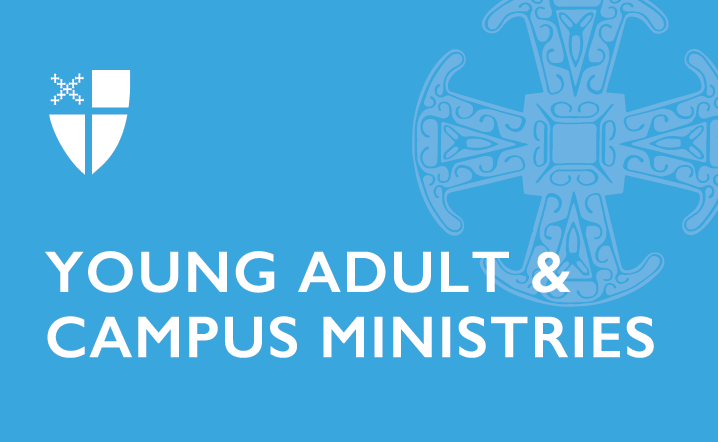Google Hangout Recap: Money Matters Resources for Fundraising
The first Tuesday of each month, we invite leaders from around The Episcopal Church to discuss topics related to Young Adult and Campus Ministries. You can watch live at 6 pm Eastern time by going to our Google Hangout page. You’ll also find an archive of our past conversations on Youtube.
This month I was joined was joined by:
Miguel Escobar and Jim Murphy from The Episcopal Church Foundation
and
Pastor Molly Knutson Keller of Gloria Dei Lutheran Church in Olympia, Washington. Molly previously served as the Campus Pastor for the Agape House Lutheran and Episcopal Campus Ministry at San Diego State University.
Our conversation centered around the importance of thoughtfully approaching the topic of fundraising. Jim stressed the relational nature of fundraising, and we talked about different ways of being in touch. Like last month’s discussion of “One on One” meetings, we talked about how face to face interaction is a priority when cultivated individual donors, or when working with the leader of a church or organization that might help fund your ministry. Paying attention to the relationship matters. Sending out a mass email, or relying on social media and fundraising sites alone won’t do the work of cultivating a network for us.
Jim talked about seeing a “fundraiser” event as a “friend raiser” and stressed that organizations like campus and young adult ministries should look to broaden their sense of who are their “alumni.” Who has a stake in our ministry? Who could be invited into the vision we have for what is possible on campus or with young adults in our area?
Molly told the story of the big fundraiser they did at San Diego State, a yearly Chili Cookoff. She said the idea came from a member of her board who “was willing to put some energy behind making the cookoff a reality.” We talked a great deal about the dynamics of boards. In the nonprofit world it is often an expectation that 100% of board members contribute annually to the organization. Do we have that commitment from our boards and advisory committees? Does your board do fundraisingel
Miguel spoke about a strategy developed by his college Erin Weber-Johnson. Look at folks who have made donations to your organization over the years. There are three groups: Loyal givers that make faithful donations every year. One-time givers are not deeply connected. Miguel said the focus is on the third group, the “moveable middle.” Spend your time working on the folks who sometimes make gifts, but not always. Erin and Miguel suggest that you should spend you time doing one on ones and making individual asks with that group.
We also answered some questions from the audience about modern tools for fundraising. The team suggested trying out new approaches for particular fundraisers. Maybe set up an online tool to help raise funds for your next mission trip or pilgrimage. “The Abbey” a new worshiping community in Birmingham is using IndieGogo to raise funds for their new coffeshop.
The last part of our conversation brought it back to relationships. To fundraise, remember that you have to pay attention to relationships. That means looking for and providing mentoring as well. If you don’t know much about fundraising, find someone who does. ECF might be able to help you find someone in your area who has raised money successfully in the church. Focus.
If you’re interested in learning more consider visiting some of the resources we talked about in our conversation:
Take some time to check out the posts on Episcopal Church Foundation’s Vital Practices.
Particularly you might want to start with these two
Lessons from a Rookie Treasurer
Millenials, Our Next Greatest Wave of Givers
You can also check out the results of the latest SDSU Chili Cookoff here.
The group also endorsed Henri Nouwen’s book A Spirituality of Fundraising.
We’ve postponed our December Conversation on Storytelling for Scheduling Difficulties. We hope you’ll join us next month, on January 6th at 6 pm Eastern Time. Sign up here to attend. You can ask questions for the panelists over the next weeks, or live during the Hangout. To ask a question on twitter using the hashtag #yaministry. You can also email your questions to mangell@episcopalchurch.org

